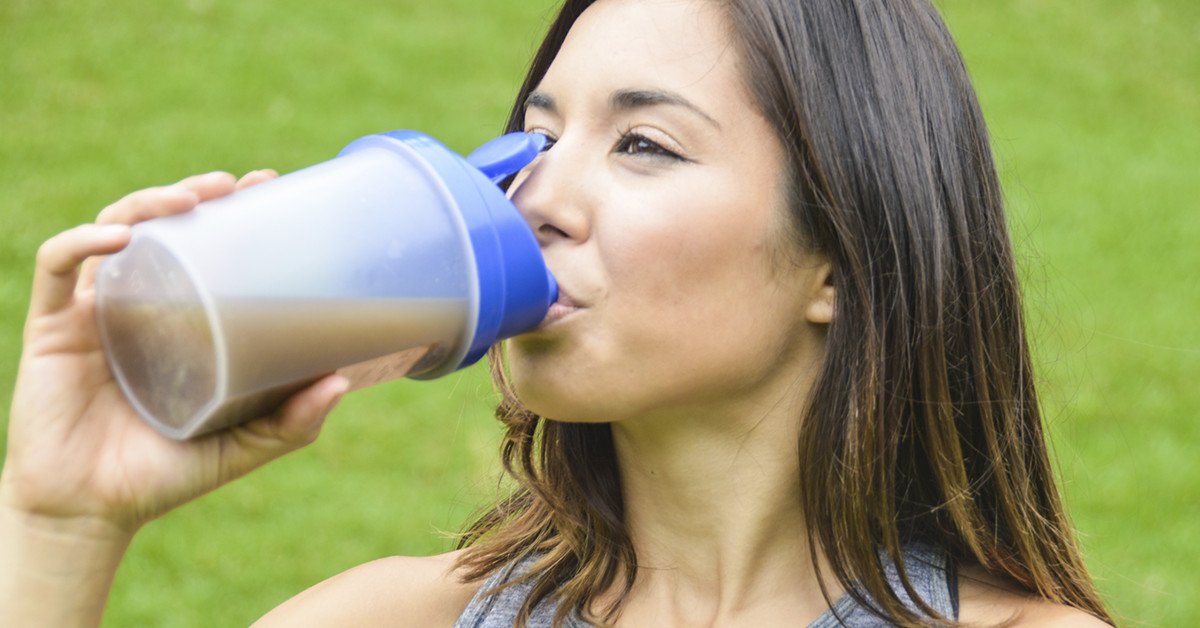
Maximize Your Effort With These 5 Pre- And Post-Workout Nutrition Tips.
Whether you hit the gym to burn fat, build muscle or to just simply look and feel good, food is the fuel that’s going to help you reach your fitness goals. In fact, what you eat pre- and post-workout can often be just as important as the workout itself! By choosing the right foods as part of your pre- and post-workout plan, you’re not only giving your body the necessary fuel to push through a tough workout, but you’re also giving yourself a boost by helping your body recover and adapt to your workouts and eventually gain the ultimate benefit of becoming more fit. Let’s take a look at a few simple nutrition rules you can follow that will help you reap the rewards of your hard work and sweat!#1 Pre-Workout Carbs Are Your Friend
Despite the bad rap that many carbs get today, they are an essential part of properly fueling your body before a workout. Just like a car relies on a tank of fuel during a road-trip, your body needs glucose (broken down carbohydrates that enter the muscle cells) in order to operate at a high workout intensity. Studies show that pre-workout carb ingestion improves both endurance and high intensity interval training (HIIT) performance. Without the proper amount of glucose, you’re most likely to feel weak and sluggish during your workouts. Good sources of pre-workout carbohydrates can include Greek yogurt, fruit, vegetables, oatmeal and whole grain breads.#2 Pre-Workout Protein
Much like carbs, protein is vital to generating the energy needed to get through a challenging workout. Protein is highly recommended for those that perform any type of resistance/strength training, as it will help prevent muscle break-down. While often thought of as more of a post-workout nutrient, ingesting protein before a workout helps supply the muscles with much needed amino acids to aid in recovery, repair and growth. Good sources of pre-workout protein can include easy mix protein powders, nuts, seeds, eggs, and Greek yogurt. Ideally you should have your pre-workout carb/protein snack in your body about 30-60 minutes before you hit the gym. For those that workout early in the morning, you may want to allow a little extra time to get a snack in … but you may also want to keep it on the light side in terms of portion size.#3 Stay Hydrated
This one not only falls into the pre- and post-workout category, but also the “during the workout” category. Regular water intake throughout the day is vital in staying properly hydrated. While there is no one-size-fits-all method to determining fluid needs and exercise, a good place to start is drinking about 16-20 oz. of water 1-2 hours before exercise and 8 to 10 oz. every 15-20 minutes during your workout. The goal is to minimize dehydration without overdoing it. While some sports drinks can be beneficial during endurance-type workouts (higher intensity and lasting an hour or more), water is almost always going to be your best choice. Stay away from the sugar filled sodas, juices and sports drinks at all times, as well as carbonated beverages prior to and during exercise.#4 Post-Workout Re-Fuel
Exercise depletes your body’s stored fuel, so it’s important to re-fuel shortly after a workout to help replenish and feed those hungry muscles! While many people find it hard to eat immediately following an intense workout, it is important to get nutrients into your system. A quick and easy way to do this is in a liquid form such as protein based shakes or smoothies or even through chocolate milk. Research has shown that chocolate milk’s 4:1 carb to protein ratio is ideal for post-workout muscle recovery. Other quick and easy post-workout re-fuel ideas include protein bars (choose ones high in protein and low in sugars), boiled eggs, yogurt, home-made smoothies/shakes, whole grain breads with nut butters, etc..#5 Post-Workout Meal
Depending on when you work out and if your schedule allows, you should try and get a full meal in your system 1-2 hours post-workout. For many this is their largest and most nutritious meal of the day. The focus should be on balance, making sure you have a good ratio of healthy carbs (veggies, fruits) a clean source of protein (chicken, turkey, fish) and some healthy fats (avocado, nuts, nut butters, etc.). Be careful not to binge and develop the “I just worked out so I can eat anything I want” mind set by indulging in foods high in sugar, saturated fats, processed foods, etc. This will only be counter-productive to all of the work you just put in at the gym and will eventually sabotage your results.#6 Re-Visit #3
Be sure you’re getting in plenty of water post-workout and avoid over-indulging in liquids that are high in calories such as alcohol, sodas, and juices.Image
About the writer: Ken Grall is a Certified Strength & Conditioning Specialist (CSCS) and owns and operates an Edge Fitness in Madison, Wisconsin. Learn more about Ken.
